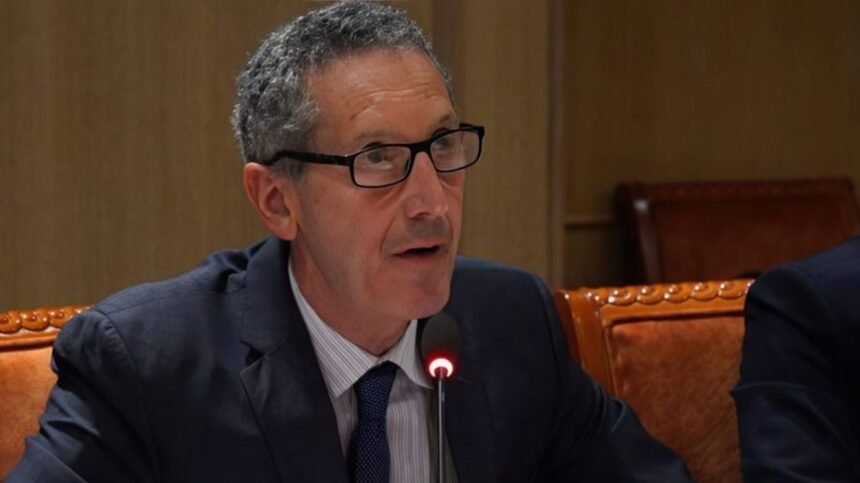Edward P. Joseph, a lecturer at the School of Advanced International Studies (SAIS) at Johns Hopkins University, stated that the United States, by applying the “Kosovo Model” to Donbas and pursuing the NATO membership of Serbia and Kosovo, could enable Trump to achieve a historic victory that would shift geopolitical balances, weaken Russia, strengthen NATO, and resolve post-war conflicts in Europe.
In an article titled “A Balkan Advance for Ukraine: NATO Membership for Serbia and Applying the Kosovo Model to Donbas”, Joseph argued that, given Trump’s fluctuating positions on Ukraine, the President appears willing to step back from efforts to halt Russia’s war.
“But he should not do that. Russia’s brutal war will continue even with increased American support for Ukraine. Instead, Trump could help achieve the long-sought ceasefire by shifting attention from the Ukrainian front to the Balkans – a region where the U.S. and its allies have greater strategic influence,” he wrote.
The Kosovo Model Applied to Donbas
Joseph proposes using the Kosovo model for Donbas:
“Instead of unclear demands for ‘territorial swaps,’ the U.S. could propose a temporary agreement for Donbas, modeled after UN Security Council Resolution 1244 – the resolution that determined Kosovo’s provisional status following NATO intervention in 1999. This model bypasses immediate recognition of sovereignty, leaving the final decision to the people at an indefinite future date. It establishes a temporary international administration (UN or OSCE) in the disputed territories, allows Ukraine to maintain its legal claim to Donbas, and provides Russia a ‘dignified’ way to accept a ceasefire. As in Kosovo, Donbas would later hold: referenda on final status, property settlements, return of refugees, and removal of Russian influence,” Joseph explained.
Serbia in NATO – A Strategic Blow to Moscow
“Another bold step would be the NATO membership of Serbia and Kosovo. Serbia is a close ally of Russia and opposes Kosovo’s independence, backed by Moscow and Beijing at the UN. If the U.S. offers Serbia a favorable deal with economic and military aid, and Vučić can politically justify this historic reversal to the Serbian public (where Trump enjoys significant popularity), Serbia’s NATO accession would be a shock to the Kremlin.”
Joseph adds that such a move would:
- Further isolate Russia in Europe
- Strengthen the West’s position in the Balkans
- Remove Russian and Chinese influence from Serbia
- Encourage lasting peace between Belgrade and Pristina
He continues: “Historic agreements could be signed at the White House, with Trump calling the leaders of Kosovo and Serbia to Washington to sign: a peace and mutual engagement agreement (without formally calling it recognition), a commitment to joint NATO accession (with reform conditions), and implementation of the Association of Serbian Municipalities in Kosovo. This would give Trump an extraordinary diplomatic victory that no U.S. president has managed to achieve since Bill Clinton.”
Edward P. Joseph is a lecturer at the School of Advanced International Studies (SAIS) at Johns Hopkins University, a senior researcher at the Institute for Foreign Policy, and at the Merrill Center for Strategic Studies.







